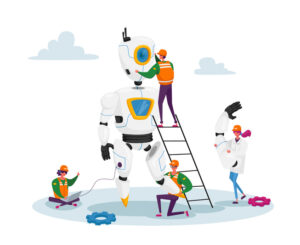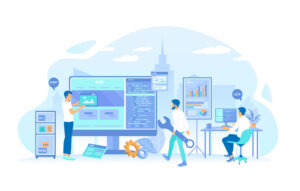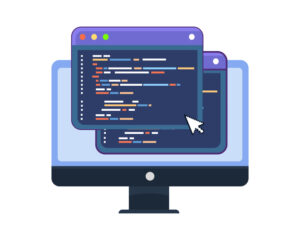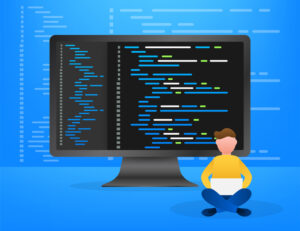Healthcare and technology may seem worlds apart, but they are rapidly converging. As healthcare relies more on digital systems, healthcare information technology (HIT) takes center stage. But what is HIT, and why does it matter for IT professionals?
What is Healthcare Information Technology?
At its core, healthcare information technology involves the use of digital systems to store, share, and analyze patient data. This includes everything from electronic health records (EHRs) and telemedicine platforms to health information exchanges (HIEs) and decision support systems. IT professionals in the healthcare industry ensure these systems work efficiently, securely, and comply with regulations — no small task.
Why Healthcare Information Technology is Booming
The Digital Transformation of Healthcare
The healthcare industry is undergoing a digital transformation, driven by the need for more accurate data, faster diagnoses, and better patient outcomes. With more hospitals and clinics adopting advanced tech, the demand for HIT professionals is skyrocketing. If you’re in IT, it’s time to learn the ropes of healthcare tech — the industry needs your skills.Better Patient Care, Powered by IT
Gone are the days of paper charts and slow communication between departments. With HIT, patient information is securely stored and easily accessible to doctors, nurses, and other healthcare professionals. This leads to more accurate diagnoses, streamlined processes, and ultimately, better care for patients.HIPAA Compliance and Data Security
With great tech comes great responsibility — especially when dealing with patient data. Healthcare professionals must comply with strict regulations like HIPAA (Health Insurance Portability and Accountability Act), ensuring that patient information is secure and confidential. IT professionals in this field are tasked with setting up and maintaining secure systems to protect this sensitive data.Telemedicine: Healthcare From Anywhere
Telemedicine is on the rise, and healthcare IT plays a pivotal role in making virtual doctor visits a reality. From building secure video conferencing platforms to integrating patient portals, HIT professionals are at the forefront of creating a seamless and secure experience for both patients and healthcare providers.
Key Roles in Healthcare Information Technology
Health IT Specialist
Health IT specialists help hospitals and clinics transition from paper to digital systems. They ensure that systems like EHRs are properly integrated and functioning, making them critical players in the healthcare IT world.Medical Software Developer
These developers build and maintain the software that healthcare providers rely on. Whether it’s a telemedicine platform or a patient scheduling app, medical software developers bring innovative solutions to healthcare problems.Cybersecurity Analyst (Healthcare Edition)
In a world where patient data is a prime target for hackers, cybersecurity analysts are on the front lines. They protect healthcare organizations from data breaches and cyberattacks, ensuring that patient information stays safe.Clinical Informatics Specialist
These professionals bridge the gap between IT and healthcare. They ensure that clinical staff can effectively use the technology available to them, optimizing workflows and improving patient care.
How to Succeed in Healthcare Information Technology
Stay Current with Industry Trends
Healthcare technology is always evolving. Keep up-to-date with the latest developments, from telehealth innovations to advances in electronic health records.Understand the Regulations
Compliance with laws like HIPAA is crucial in healthcare IT. A solid understanding of these regulations will help you navigate the complexities of healthcare technology and avoid costly mistakes.Focus on Security
In healthcare, security isn’t just a nice-to-have; it’s a must-have. Whether you’re developing software or managing a system, make sure security is a top priority.Be Patient-Centered
While technology plays a huge role in healthcare, it’s always about improving patient outcomes. Keep the patient at the center of everything you do — because ultimately, that’s what healthcare IT is all about.
Challenges to Keep in Mind
Interoperability Issues
Healthcare systems often use different technologies, which can lead to compatibility problems. Making sure systems can “talk” to each other is one of the biggest hurdles in healthcare IT.Data Privacy Concerns
Handling sensitive patient data means you need to stay on top of security and privacy. Healthcare IT professionals must protect this data from breaches, ensuring that patient confidentiality is maintained at all costs.Adoption Resistance
Not everyone loves technology — especially in healthcare. Some staff members may be resistant to change, so part of your job in healthcare IT may involve training and encouraging adoption of new systems.

Conclusion
Healthcare information technology goes beyond being a buzzword—it’s a fast-growing field with massive potential to improve patient care and transform the industry. Whether you’re a seasoned IT professional or just starting out, HIT offers countless opportunities. If you’re aiming for a career that combines cutting-edge technology with the chance to make a real difference in people’s lives, healthcare IT could be your ideal path.
When it comes to tech, there’s no better way to make an impact than by helping people stay healthy—and technology is driving that mission. Ready to dive in? The future of healthcare is here, and IT is leading the charge.








